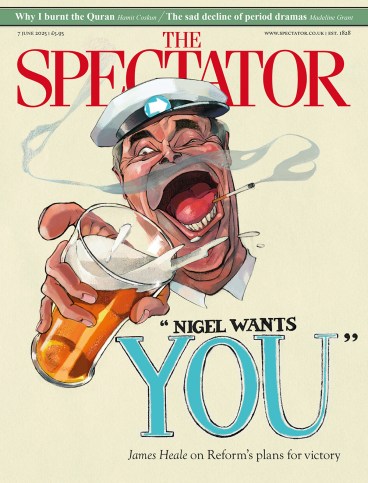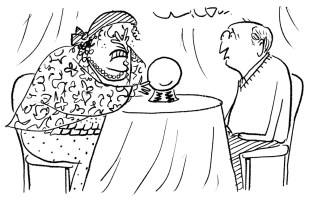
Some sorts of books and dramas have very strict rules. We like a lot of things to be absolutely predictable. In romantic comedies, a girl chooses between a charmer who turns out to be a rotter and another man she hates at first but then falls for. In the BBC’s long-running Casualty, if a worried patient turns up with his put-upon wife who coughs twice, it’s the wife who’s got an undiagnosed fatal disease. Bertie Wooster falls for a girl that Jeeves doesn’t care for and the valet goes to some lengths to detach his employer.
We like these things because they’re safe and a little bit cosy and we all know what the rules are. One of the most rigid genres at the moment is slightly different. Even though it’s got a set of incredibly strict rules, it’s regarded by its adherents, not as an exercise within conventional boundaries, like an episode of Midsomer Murders, but as a radical demonstration of rule-breaking. I’m talking about the experimental novel. After a while, the sceptical reader has to ask: if the same rule is being broken in exactly the same way, novel after novel, at what point does that turn into a new and very strict rule?
Earlier this year, the Irish-British novelist Eimear McBride published a new novel, The City Changes Its Face. I single her out but, to be honest, there is no shortage of other exemplars. It was greeted with rapture by book reviewers. The Guardian observed with awe that ‘she uses verbs as nouns, nouns as adjectives’. This magazine’s reviewer wrote: ‘To say that it is “experimental” doesn’t do justice to its flexibility and force. As with the earlier novels, we become immersed in the female narrator’s viewpoint.’ With respect, it would be pretty strange to describe an English novel as experimental on those grounds, 300 years after Moll Flanders.
I’ve spent the past five years writing a history of the novel in Britain. One conclusion is that almost everything greeted as radical in the experimental novel was being done by novelists not just decades, but often centuries ago. I mean, it wasn’t exactly revolutionary when, like McBride, P.G. Wodehouse used one part of speech as another and described Bertie Wooster as being able to ‘out-Fred the nimblest Astaire’. Another was getting to recognise the rules of a strict literary genre – strict about the way its sentences should run, as well as the way the plot goes. Here, with no doubt, was one of these genres. It is just pretending that it breaks rules, rather than following them assiduously.
The experimental novel starts, as McBride’s does, with the title, a studiously vague and portentous sentence. (Recent examples include We Would Have Told Each Other Everything, It Lasts Forever and Then It’s Over, The Things We’ve Seen, No One Is Talking About This, There Are More Things and If Nobody Speaks of Remarkable Things.) When we start to read, McBride has made some of the most banal decisions a novelist in 2025 could possibly make. Everything is seen through the thoughts of a woman, and we are in her head. It wasn’t new when Virginia Woolf did it in Mrs Dalloway (1925), or even George Moore in Esther Waters (1894), but at least they got their characters to notice some interesting things. McBride’s rules state that the things observed must, for the most part, be staggeringly uneventful.
If the same rule is being broken in the same way, novel after novel, at what point does that turn into a new rule?
The dialogue, when it comes, should be both utterly uninteresting and totally unconvincing. ‘Are you going somewhere [sic: anywhere] tomorrow? Just round the corner to get a few things in. Maybe take a turn around the park if you fancy it, Eil? If it’s not raining I might. Okay.’ It’s somewhat amazing to me that McBride has never noticed that people don’t, on the whole, constantly use each other’s names if they are married to each other. But this is an experimental novel. The dialogue conforms to the strictest of ExFic rules by eschewing those helpful little things, quotation marks. This is what ‘breaking the rules’ means.
It is, inevitably, in the present tense. It is astonishing anyone still regards this as venturesome. Large sections of Dickens are in the present tense. Many of Surtees’s most thrilling hunting scenes drop into it. By the end of the 19th century, whole novels were being written in it – I just read Lady Florence Dixie’s 1890 Gloriana, an interesting fantasy of the future, which, incidentally, predicts to the very month the creation of the Welsh and Scottish parliaments in 1999. These days, it’s more or less compulsory.

The experimental novel should, ideally, be written in the second person, addressing a named or unnamed ‘you’. That’s also been going on for decades – Lewis Grassic Gibbon wrote a whole novel in it in the 1930s. Or centre around a character who is never named, like Fanny Burney’s last novel, The Wanderer (1814). Or have a non-human narrator – radical, if you’ve never heard of Francis Coventry’s 1751 novel narrated by a dog, The History of Pompey the Little. Or play with the appearance of the type on the page – regularly hailed as groundbreaking ever since Tristram Shandy (1759). McBride’s is, of course, about a particular section of society – bohemian, Corbynite, virtue-signalling. A novel about ambitious city traders could be as bold as James Buchan’s High Latitudes (1996), but these days it would never be acknowledged as something with an experimental aspect. It just wouldn’t fulfil the strict criteria. Its characters are too posh.
What has created this bizarre effusion? From the very beginning, novels have struck out and done new things, genuinely innovating and startling readers. Robinson Crusoe was experimental, and Waverley, and The Pickwick Papers, and The Woman in White, and Decline and Fall and dozens of others. They innovated because they wanted to seize the attention of a readership with money to spend. Experimental fiction in the modern-day sense is different. It has largely attained prominence through appealing to prize juries and other self-appointed patrons. Such people most confidently reward radical innovation if it looks like the last six examples of radical innovation they came across. The genre of ‘experimental fiction’ is the last place many readers would look at to find anything new, or even anything interesting.







Comments